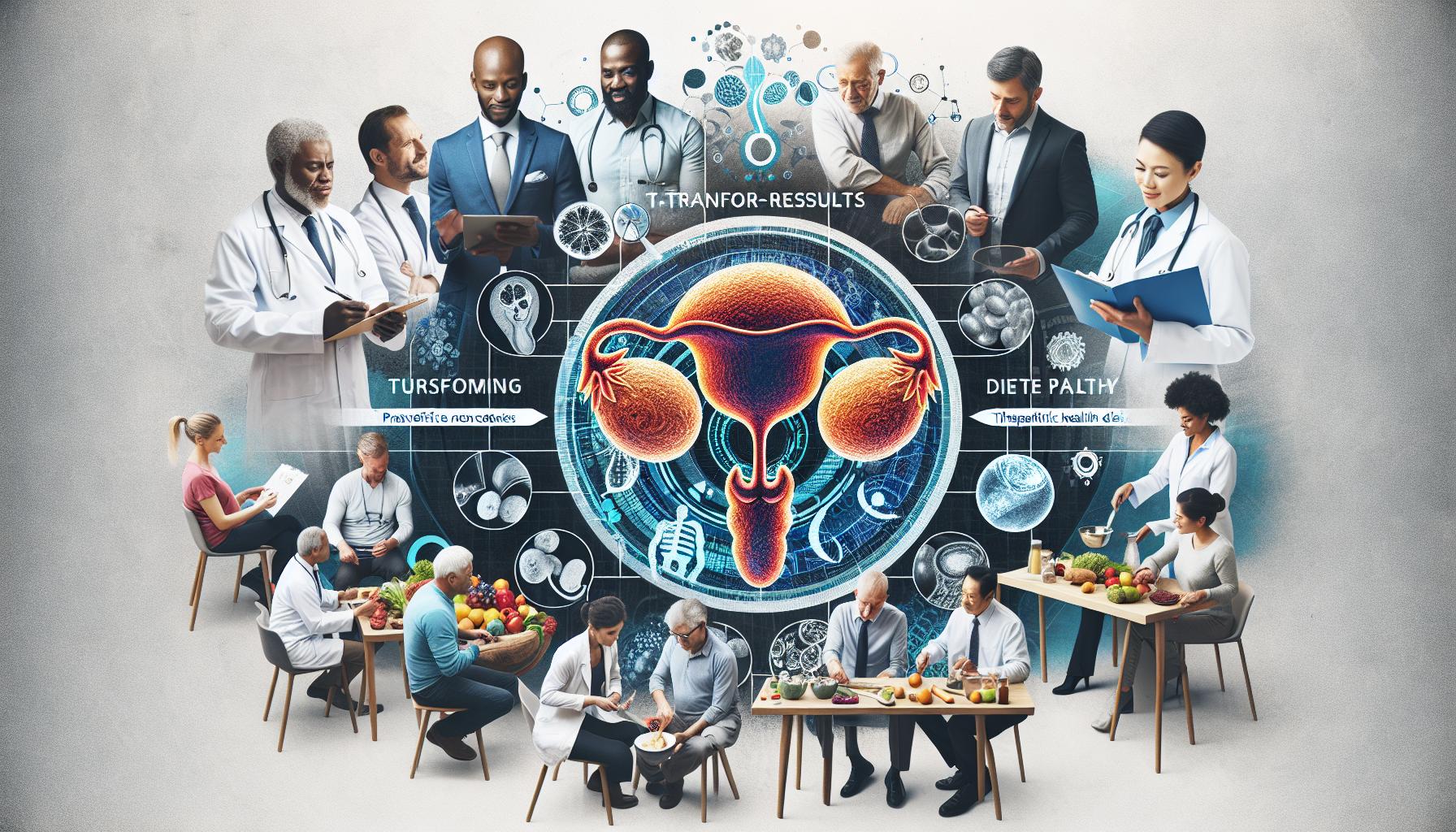A New Wave of Wellness: Revolutionizing Outcomes with Prostate Cancer Diet Therapy
How can dietary therapy revolutionize outcomes for prostate cancer? Delving into diet therapy, an avenue that explores the remarkable role of diet and nutrition in boosting health, could be a game-changer. Evolving from the classical medical protocols, this approach offers new dimensions to prostate cancer management, laying emphasis on the power of food as a potential tool in combating this life-altering disease. This article will unveil the facets of prostate cancer diet therapy, its significance, potentials, and practical ways to incorporate these dietary changes into your routine.
The Promising Potential of Prostate Cancer Diet Therapy
Sometimes, the most potent remedies reside in the simplest things and nothing exemplifies this more succinctly than the meals sitting on your plate. Though not a stand-alone treatment, diet therapy can serve as a valuable component of a comprehensive prostate cancer management plan. Adopting a prostate-friendly diet can assist in slowing the cancer’s progression, enhancing the effectiveness of conventional treatments, and improving overall quality of life.
How Diet Influences Prostate Cancer
Prostate cancer, like several other ailments, is not entirely immune to the influence of diet. A diet high in saturated fats, processed foods, and low in fruits and vegetables might foster cancer growth. On the flip side, a balanced diet, rich in certain nutrients, has the potential to stave off prostate cancer or at least slow its progression.
Dietary Modifications for Prostate Health
You are what you eat, folks say, so here’s the scoop: fueling your body with prostate-friendly foods can take you a long way in your battle against prostate cancer. Here are a few dietary adjustments that are essential for improved prostate health. Firstly, aim to include more fruits and vegetables in your daily regimen—these nature’s delicacies are packed with anticancer compounds. Opting for lean proteins over red and processed meats also aids in reducing cancer risks.
The Power of Plant Proteins
By introducing more plant-based proteins—found in legumes, seeds, and nuts, into your diet, you’re not just avoiding the saturated fats present in animal proteins but also enriching your body with essential nutrients that can help fight cancer. This by no means encourages a full vegan voyage but simply a gradual inclusion of plant proteins.
Buzz About Beverages
While we’re on the subject, let’s not forget the power of what’s in our cups. Drinking green tea, known for its antioxidant properties, can confer protective benefits against prostate cancer. Cutting down on the cuppa joe might seem like a bitter pill to swallow for coffee aficionados, but studies suggest that lower caffeine intake could be beneficial.
Role of Green Tea
Green tea is more than a heartwarming brew—it’s a powerhouse of potent antioxidants known as catechins, which have been linked to cancer prevention. For those open to exploring new tastes, swapping coffee with green tea could be a significant step towards a prostate-friendly diet.
Adopting A Healthier Lifestyle
Adopting a prostate-friendly diet isn’t just about meticulous meal planning—it’s also about embracing a holistic lifestyle. Regular exercise, sufficient sleep, stress management, along with dietary reforms, can prove a powerful ally in your fight against prostate cancer.
The Exercise Edge
Human bodies are wired for movement. Regular exercise not only keeps weight in check, crucial for prostate health, but also helps keep your metabolism humming along, creating a hostile environment for prostate cancer progression.
In Conclusion
Revolutionizing outcomes with diet therapy isn’t about perfecting an exclusive food list—it’s about making sustainable, healthy choices that contribute to overall wellness while specifically benefiting prostate health. Integrating these practices with traditional medical treatments could potentially steer the tide in your favor against prostate cancer, transforming the journey from surviving to thriving.
Frequently Asked Questions
1. Are there specific foods to avoid with prostate cancer?
Yes, it’s advisable to limit intake of red and processed meats, sugar-sweetened beverages, and high-fat dairy products when dealing with prostate cancer.
2. Can dietary changes help with prostate cancer treatment?
While diet alone can’t treat prostate cancer, incorporating certain dietary changes can help enhance treatment effectiveness and improve overall health.
3. Are fruits and vegetables good for prostate health?
Yes, fruits and vegetables packed with antioxidants and phytochemicals can help deter the growth of prostate cancer cells.
4. Is green tea beneficial for prostate health?
Green tea is packed with potent antioxidants known as catechins, which have been linked to cancer prevention, including prostate cancer.
5. Can exercise help in managing prostate cancer?
Yes, regular exercise maintains a healthy body weight and fosters overall wellbeing, creating a less favorable environment for prostate cancer to progress.


